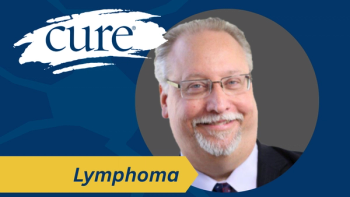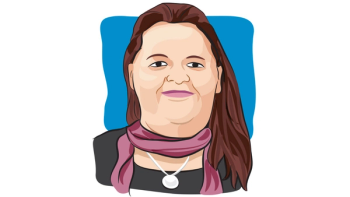
Practical Advice for Patients With Newly Diagnosed FL
Transcript:
Gerald Koch: Any advice I could provide for anyone else going through the same situation? First off, you’ve got to listen to your doctor. I was kind of shocked when I was first diagnosed. I didn’t have anyone in my family who had been diagnosed with cancer before. I did some research on it, wanted to learn about it. I wanted to learn about the treatment options and the survivability. When I went through my first treatment, everything went well. There was always talk about getting a second opinion. We discussed that. I was referred to a doctor, and it was the same. Then we talked about treatment options. And as Dr. Venugopal said, I went with what was a pretty common treatment at the time. I had the support of my wife, my family. It wasn’t a problem to take off work, so I didn’t have to worry about that.
Take care of yourself, eat right and listen to what your body is saying. I didn’t have many side effects, so I can’t offer too much on that. But after the first treatment, it was offered to me to go on a clinical trial, and I was told that clinical trials are beneficial and that maybe you get access to drugs that other people might not, who aren’t participating in a trial, that you have access to, and there’s always new stuff coming out. I wouldn’t discount that. My clinical trial did not work out. However, it doesn’t mean that it won’t work out for someone else. So everyone reacts differently, I guess. And it didn’t work for me, but perhaps other people will have better results.
Parameswaran Venugopal, M.D.: Yeah, I think that it is important to know what Gerry went through because I think one of the things I particularly liked in my interactions with Gerry and his wife is that each time they listened to me first, but then they did their own research. They talked to others, read about it and then would come back and ask questions. So it is a combined effort, not just the doctor coming in telling you, “This is the best treatment.” I think this is the way every patient with lymphoma, or other cancer, should be thinking and should also think about trying to get a second opinion. That doesn’t mean that you don’t trust your doctor. It’s always a good idea to get a second opinion.
And also, try to educate yourself about the disease and the options. There may be more than one option. And then, of course, you have to believe in your doctor. And that belief comes out of your own research, and then the relationship you have with your doctor is very important. And Gerry had not only the determination to get through this but also wonderful support from his family, so he was able to go through what occurred and get the best results out of them. So that’s what I would encourage you to do. Get a second opinion, and try to learn about the disease and your options before agreeing for a treatment.
Transcript Edited for Clarity




